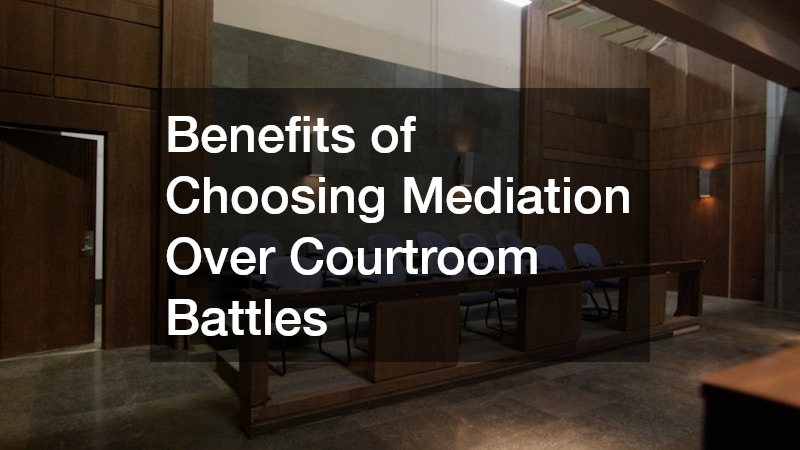In an increasingly litigious society, finding alternative methods for conflict resolution has become essential. Mediation offers a solution by allowing conflicting parties to find common ground without the need for a courtroom. A mediator plays a pivotal role in this process by facilitating discussions and fostering understanding between the parties involved. Unlike a judge or arbitrator, a mediator does not impose a decision but rather guides the conversation towards a mutually acceptable resolution.
The flexibility and confidentiality of mediation make it an attractive option for many seeking to resolve disputes efficiently and amicably.
The demand for mediation services has surged as people recognize the financial and emotional costs of going to court. Litigation can be time-consuming, expensive, and adversarial, which often exacerbates the conflict. In contrast, mediation provides a space for open dialogue and collaborative problem-solving, which can lead to more satisfying outcomes for all parties involved. The process is designed to empower individuals and maintain relationships by focusing on interests rather than positions. This approach has made mediation popular in various sectors, from family law disputes to corporate negotiations.
Mediation’s success lies in the skills and techniques employed by the mediator. Through active listening, empathy, and re-framing issues, the mediator can help parties communicate more effectively and identify underlying concerns. By creating a safe and neutral environment, the mediator facilitates constructive dialogue and encourages creative solutions. Participants are also more likely to adhere to agreements that they have had a hand in shaping, leading to longer-lasting resolutions. With these advantages, mediation is becoming the preferred method of dispute resolution for many.
The Role and Skills of a Mediator
The role of a mediator is crucial in steering discussions effectively and equitably. A mediator must remain impartial while ensuring that each party has an opportunity to voice their concerns and needs. This requires a deep understanding of human behavior and conflict dynamics. The mediator leverages these insights to prevent escalation and keep the dialogue focused on resolution. The mediator’s role is not to decide who is right or wrong but to facilitate a process where each party feels heard and understood.
Communication skills are at the heart of successful mediation. A mediator must be adept at active listening to accurately capture the essence of each party’s viewpoints. Additionally, they must communicate clearly and concisely to avoid misunderstandings and guide the negotiation process. The ability to re-frame contentious issues in a less confrontational manner can also help reduce tension and foster a more productive conversation. By enhancing communication between parties, a mediator can uncover mutual interests that lead to agreeable solutions.
Apart from communication, a mediator also employs various techniques to facilitate resolution. Techniques such as brainstorming and exploring alternatives can lead to innovative solutions that might not emerge in a courtroom setting. A mediator might also use reality testing to help parties understand the potential consequences of not reaching an agreement. This strategy often motivates participants to cooperate and consider options they were previously opposed to. The mediator’s skill in using these techniques can significantly influence the success of the mediation process.
Benefits of Choosing Mediation Over Courtroom Battles
One of the paramount benefits of mediation is cost-effectiveness. Courtroom battles can incur significant legal fees and other expenses, potentially draining resources over extensive periods. In contrast, mediation tends to be quicker and more direct, allowing individuals to save both time and money. These savings are often a motivating factor for parties inclined towards this mode of resolution. Moreover, the non-adversarial environment of mediation helps maintain relationships that are often strained by legal confrontations.
Another significant benefit is confidentiality. Court cases are generally a matter of public record, potentially exposing sensitive information. Mediation provides a private setting where discussions remain confidential, encouraging honesty and openness. This confidentiality is crucial for parties who wish to settle disputes discreetly and maintain reputations. By ensuring privacy, mediation allows parties to address matters without fear of public scrutiny or damage to their personal or professional lives.
Finally, mediation offers flexibility in outcomes that a court cannot provide. The agreements reached through mediation are tailored to the unique needs and interests of the parties involved. Unlike court judgments, which are binding and subject to strict legal frameworks, mediation outcomes can accommodate creative solutions. This flexibility often results in solutions that are more satisfactory to all parties. Furthermore, because participants are more involved in the process, compliance with the mediation agreements is typically higher than with court orders.




